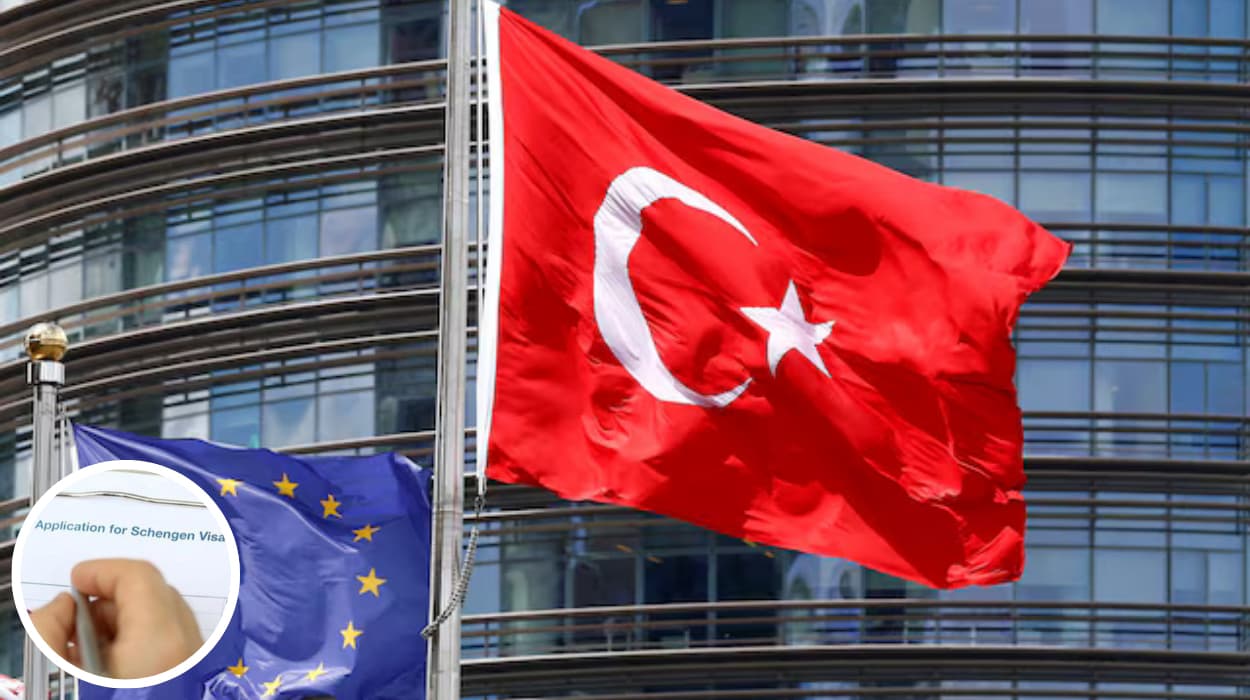Summary
- EU relaxes Schengen visa rules for Turkish citizens.
- Move aims to ease travel between Turkey and the EU.
- EU Ambassador welcomes change but calls for more reforms.
- Part of ongoing EU-Turkey diplomatic talks.
- Visa easing linked to broader political and security issues.
The European Union has relaxed the requirements for Schengen visas for Turkish nationals, a significant development designed to ease the process of travel across EU member states for Turkish citizens. This relaxation is part of broader efforts to enhance cooperation and facilitate mobility between Turkey and the EU. Details about the exact nature of these eased requirements have not yet been extensively disclosed in the sources; however, it generally suggests a streamlined visa application process or reduced bureaucratic hurdles for eligible Turkish travelers. This easing of visa restrictions is regarded as a positive step in strengthening EU-Turkey relations and encouraging cultural and economic exchanges through enhanced travel freedoms.
Why Has the EU Made This Change Now?
The EU’s decision to ease Schengen visa rules for Turkish nationals comes as part of ongoing diplomatic discussions aimed at improving ties between the European bloc and Turkey, which have experienced fluctuations due to political disagreements and policy divergences in recent years.
EU officials and the Turkish government have been engaged in talks focusing on areas of mutual interest including migration management, economic cooperation, and human rights issues. Easing visa restrictions is seen as a gesture to build trust and renew commitments on stalled dialogues.
How Has the EU Ambassador to Turkey Reacted to This Decision?
The EU Ambassador to Turkey, while acknowledging and welcoming the visa liberalization, has emphasized that further progress is necessary. In statements attributed to the envoy, the move is described as a step forward, yet insufficient in itself.
The Ambassador urges more comprehensive reforms and practical actions to improve mobility, not only in simplifying visa issuance but also in addressing broader concerns such as security cooperation and fundamental rights protections which impact the visa policy framework.
What Are the Reactions from Turkish and European Officials?
This latest development has been met with cautious optimism from both sides. Turkish officials express hope that easing visa restrictions will boost tourism and business travel, stimulating economic benefits and people-to-people contact.
European officials regard the move as a confidence-building measure, but stress that Turkey's compliance with EU standards on key issues remains pivotal for full visa liberalization. This approach reflects the complexity and conditionality often linked to visa policy between the EU and external partners.
What Is the Context of EU-Turkey Relations Behind This Visa Policy Change?
EU-Turkey relations have been characterized by a mixture of collaboration and tension. Turkey’s long-standing candidacy for EU membership has not progressed as expected, complicated by political developments, human rights concerns, and disagreements over foreign policy.
Visa liberalization has been a contentious and symbolic issue since the visa waiver has been linked to Turkey fulfilling certain criteria set by the EU, including on security, migration management, judicial reforms, and anti-terrorism measures.
Recent moves by the EU easing the Schengen visa rules should be seen in this light — both as part of a broader political strategy and as a pragmatic approach to manage bilateral issues amid shifting geopolitical dynamics.
How Will This Visa Easing Impact Turkish Citizens and Travel?
The easing of Schengen visa rules is expected to significantly benefit Turkish citizens by simplifying their access to travel across the EU’s Schengen Area. This can lead to an increase in tourism, business trips, educational exchanges, and family visits, fostering stronger people-to-people connections. For many Turks, travel to Europe has been hindered by complex and lengthy visa procedures, so the new measures offer a practical relief that could stimulate economic and cultural ties.
What Are the Implications for EU-Turkey Relations Moving Forward?
This change in visa policy adds a positive chapter to the often complicated EU-Turkey relationship. By easing travel restrictions, both sides signal a willingness to cooperate and build mutual trust despite existing political challenges. However, the progress remains contingent on Turkey addressing key EU concerns, particularly around rule of law and human rights. The visa easing may serve as a foundation for deeper negotiations and enhanced collaboration across various sectors in the future.
What Are the Prospects and Challenges Going Forward?
The easing of visa restrictions is encouraging but still tentative. For Turkey and the EU to deepen their engagement, there is widespread recognition from diplomats and experts that more substantive reforms and policy harmonization are required.
Challenges remain including political will, mutual suspicions, and differing priorities between Ankara and Brussels. Progress on visa liberalization thus depends not just on revising technical rules but also on addressing underlying political and human rights concerns.
EU Ambassador’s comments underline the expectation that this initiative should serve as a springboard for additional cooperation and trust-building, rather than an end goal.
This development marks an important chapter in EU-Turkey relations, reflecting both the complexity of international diplomacy and the constant balancing act between political considerations and practical cooperation. While the easing of Schengen visa rules signals goodwill, much remains to be done for a normalized and fully functional visa regime benefiting the people of Turkey and the European Union.

